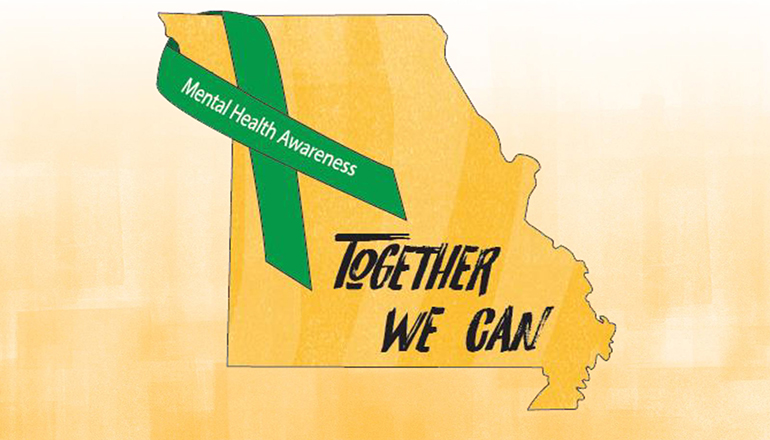The University of Missouri Extension and Show-Me Farm Safety recently released a new Together We Can toolkit to help rural Missourians access mental health resources.
“Missourians are strong and resilient in the face of the challenges and uncertainty that can come with farm life,” says Marshall Stewart, MU vice chancellor for extension and engagement and University of Missouri System chief engagement officer. “MU Extension supports Missourians as they meet those challenges – including providing accessible mental health resources that help keep farmers, their families, and their businesses going strong.”
“Farmers and ranchers face new and unique challenges on a daily basis and managing the stress that comes with these challenges can be demanding,” said Chris Chinn, director of the Missouri Department of Agriculture. “The resources made available through the Together We Can toolkit will help the agriculture community start the conversation about managing stress. Having these tools available to our rural communities will help build a stronger community and raise awareness about an important topic that impacts the backbone of our country.”
“The toolkit presents resources to open up conversations about mental health,” says MU Extension health and safety specialist Karen Funkenbusch. “Making it comfortable to talk about mental health is the first step in a healthy society.”
The toolkit release kicks off Mental Health Awareness Month, observed in May, Funkenbusch notes. Show-Me Farm Safety’s Missouri partners include AgrAbility, Missouri Cattlemen’s Association, FFA, 4-H, Missouri Farm Bureau, the State Highway Patrol, and the state’s departments of Agriculture, Labor, Mental Health and Transportation.
“Economic uncertainties, changes in commodity prices, and ongoing weather issues add to the daily stresses of farming and ranching,” says Funkenbusch. “Stressors during COVID-19, including social isolation, financial insecurities, and other health concerns, can mount.”
Rural Missourians sometimes encounter barriers to receiving timely help because mental health services may not be available in all rural counties, Funkenbusch says. Additionally, many farm families lack adequate insurance coverage for mental health services.
The MU schools of Medicine and Nursing and the University of Missouri-Kansas City School of Pharmacy collaborate with MU Extension each summer to offer students a two-week clinical immersion experience to learn about health issues unique to rural populations, says Kathleen Quinn, MU senior program director for health and safety. The program addresses workforce shortages by helping to attract providers to areas of need, Quinn says.
Funding from the USDA National Institute of Food and Agriculture through the Farm and Ranch Stress Assistance Network has allowed MU Extension to offer free QPR Gatekeeper Training in April and May. The one-hour online class presents tips for emergency mental health intervention for suicidal persons.
“In collaboration with our partners, our Together We Can toolkit provides resources to support the mental health and well-being of our farmers, ranchers, and their families,” Funkenbusch says.
Throughout May, Together We Can will join the national Mental Health Awareness Month campaign to provide resources to people in farming and rural communities where they live, work, and play.
“With increased pressures on today’s farmers, we want to let farmers know there are ways to fight stigma and provide a safe environment to address mental health concerns,” says Funkenbusch.
Missouri’s Together We Can campaign runs May 1-29. Weekly topics are Mental Health Awareness, May 2-8; Referral Resources, May 9-15; Recognizing Signs & Symptoms, May 16-22; and Managing Stress, May 23-29.
For more information, search “Show Me Strong Farm Families” on the University of Missouri Extension website, visit the Show-Me Farm Safety, or contact Funkenbusch at [email protected] or 573-884-1268.
Download the toolkit at this link.







